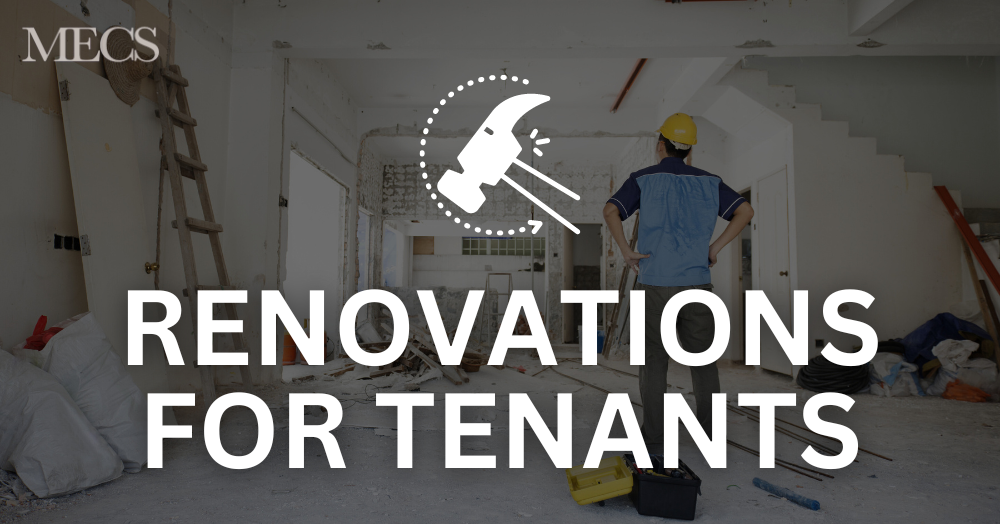Many landlords are open to allowing tenants to make improvements or renovations to their rental properties, but it's important to approach these projects with caution.
Dos for Renovating a Rental Property:
Seek Permission:
Before starting any renovation project, it's crucial to obtain written permission from your landlord. Communicate your plans clearly, outlining the changes you intend to make and how they will enhance the property. Having written consent ensures that you're adhering to the terms of your lease and helps avoid any misunderstandings in the future.
Stick to Temporary Changes:
Opt for modifications that are easily reversible. Focus on cosmetic improvements such as painting the walls, hanging curtains or blinds, adding removable wallpaper, or changing light fixtures. These changes can significantly transform the space without causing permanent damage.
Keep Original Materials:
Whenever possible, store and preserve any original fixtures, hardware, or materials that you remove during the renovation. This allows you to reinstall them before moving out, ensuring the property remains in its original condition.
Hire Professionals:
Unless you have the necessary skills and experience, it's advisable to hire professionals for complex renovations. Skilled contractors will ensure the work is done properly and minimise the risk of causing damage. Additionally, they can provide valuable guidance on materials and design choices.
Maintain Open Communication:
Throughout the renovation process, keep your landlord informed of the progress and any unforeseen challenges. Regular updates will help build trust and showcase your responsible approach as a tenant.
Don'ts for Renovating a Rental Property:
Avoid Structural Changes:
As a tenant, it's generally best to avoid making any structural modifications to the property. This includes knocking down walls, altering plumbing or electrical systems, or making changes that may compromise the building's integrity. These types of changes typically require the expertise of professionals and approval from the landlord or property owner.
Steer Clear of Permanent Fixtures:
Avoid installing permanent fixtures or making changes that cannot be easily reversed. Examples include built-in shelving, wall-mounted installations, or major alterations to the property's layout. Such modifications may not align with your lease agreement and could result in disputes with your landlord.
Don't Ignore Safety Regulations:
Ensure that any renovations you undertake adhere to local safety regulations and building codes. Ignoring these regulations not only poses risks to your safety but can also lead to legal complications and potential financial liabilities.
Refrain from Unauthorised Alterations:
It's important to respect the boundaries set by your lease agreement. Refrain from making any renovations that are explicitly prohibited, such as installing additional plumbing fixtures or conducting renovations in common areas without permission.
Conclusion:
Renovating a rental property can be an excellent way to create a more comfortable and personalised living space. By following the dos and don'ts outlined in this blog post, you can navigate the renovation process effectively while maintaining a positive relationship with your landlord. Remember, always seek permission, focus on reversible changes, hire professionals when necessary, and communicate openly. With careful planning and consideration, you can transform your rental property into a place that truly feels like home. If your current property is suitable to your needs and you landlord isn't happy with you carrying out renovations, get in contact with us so we can find you the perfect property.
0121 681 6327
info@mecsproperty.co.uk

